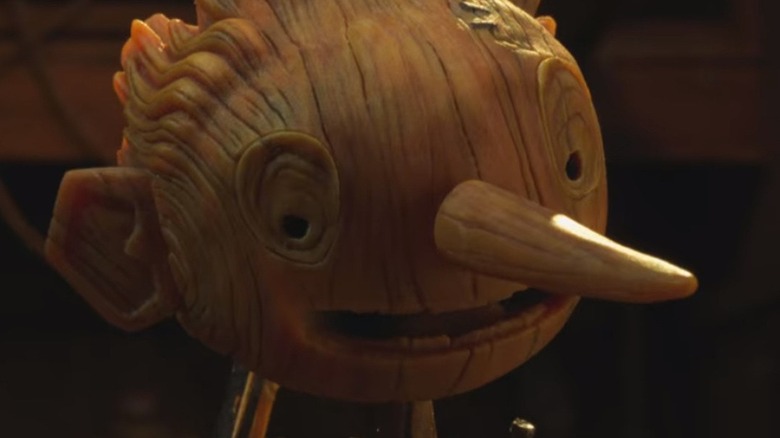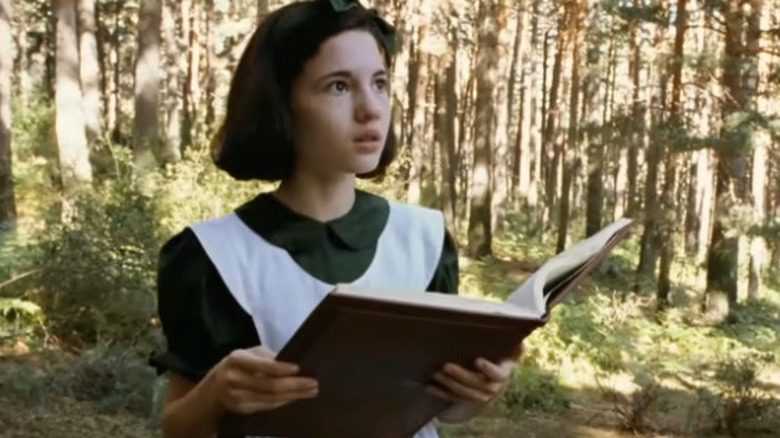How Pan's Labyrinth's Central Character Arc Inspired Guillermo Del Toro's Vision For Pinocchio
Many critics and fans praise filmmaker Guillermo del Toro for his incredible ability to bring fantastical worlds to life on the big screen. Whether with the Academy-award-winning "The Shape of Water" or the Kaiju-spectacle "Pacific Rim," del Toro is a master at consistently wowing audiences with his unique vision for filmmaking. Recently del Toro's talents focused on the world of stop-motion animation with his version of "Pinocchio." The film premiered on Netflix last November and has long been a dream project for del Toro. And although many are familiar with the story of a wooden boy who wished to become real, del Toro's version is unlike any other.
Instead of a young puppet boy who learns lessons on obedience, del Toro's take on the protagonist is disobedient throughout much of the movie. But given the harsh backdrop of Italy during World War II and adults who don't have his best interest at heart, Pinocchio's rule-breaking proves to be one of his most essential assets. Fans will quickly realize that del Toro was influenced by a lot for "Pinocchio." But one particular character's arc in his classic film "Pan's Labyrinth" was a massive inspiration for his vision of the character.
Pinocchio's struggles measure his soul like Ofelia's trials
In "Guillermo del Toro's Pinocchio," our titular protagonist goes through a series of personal trials involving multiple trips to the afterlife. Through his adventures and observations of the good and bad of humanity, Pinocchio faces things that challenge him more on the inside. And by the end of the film, his sacrificial choice to save Geppetto results in him becoming a real boy in spirit. A young protagonist going on a life-altering quest of one's soul isn't new territory for del Toro. And that might have been by design, as the filmmaker noted to The Wrap, how Ofelia's (Ivana Baquero) arc in "Pan's Labyrinth" may have inspired his idea for Pinocchio.
"I thought we needed something that was a threshold for Pinocchio — something that made him a real boy, not physically but spiritually," del Toro told The Wrap. "The main character in 'Pan's Labyrinth' had tests that were not physical tests, but they changed her and measured her soul."
Ofelia certainly dealt with challenges of morality in "Pan's Labyrinth." Even her penultimate test in that film kind of mirrors' Pinocchio's sacrificial moment. When tasked with spilling the blood of her newborn brother, she decides against it. But as a result, it's the right choice, as when her blood is spilled upon her death, she's able to join the throne to the underworld with her mother. In any case, this is an excellent example of the astonishing links fans could make between del Toro's films.

